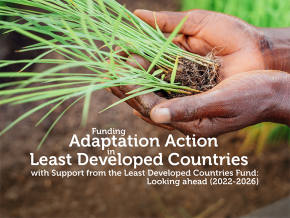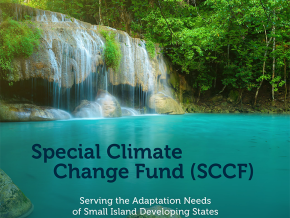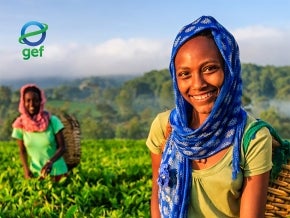
Implementing Agency: World Bank
GEF SPA Financing: $1,800,000
From 2006, the Kiribati Adaptation Program, Phase II (KAP II) has helped identify and pilot adaptation measures to improve coastal protection, freshwater supply, and sustainability for the Pacific island nation of Kiribati, one of the most isolated countries in the world, and one of the most vulnerable to climate change and sea level rise. Climate risk considerations have been integrated in key Ministry plans, and the project has helped develop and apply best practices in water resource management and coastal protection. Approximately 0.5 km of sea walls have been built along the main road, over 37,000 mangrove seedlings have been planted and several water management improvements have been carried out, all helping to increase resilience to the effects of climate change for Kiribati's 98,000 residents.


